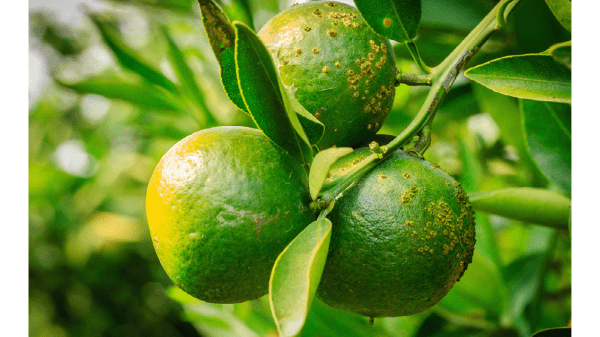
Florida representatives in both houses of Congress have introduced a bipartisan measure that would amend the federal Conservation Reserve Program to include the state’s citrus acreage, which has suffered from a number of blows from weather, disease, and urbanization in recent years.
Marco Rubio (R-FL), who introduced the measure in the Senate, said, “Florida’s agricultural industries play a vital role in feeding our nation and supporting our economy. Unfortunately, due to impacts from hurricanes, citrus greening, and unfair trade pressures, Florida’s citrus growers are increasingly left with little choice but to sell their land to developers. This legislation will help protect Florida’s agricultural lands and wildlife corridors, ensuring that Florida’s citrus growers can continue to provide for our state and nation.” .
Rep. Darren Soto (D-FL), a cosponsor of the bill in the House of Representatives, said, “As we work to address the challenges facing our Florida citrus industry and support our growers and farmers, we must also prioritize the protection of the land on which these crops are grown. The subprogram this bill proposes for the Conservation Reserve Program (CRP) will provide citrus growers with a valuable option to conserve their land while we continue to develop new treatments for citrus greening and recover from the damage caused by hurricanes. The subprogram will also help prevent the permanent loss of Florida’s agricultural lands to development and protect critical wildlife corridors. This is a timely and important bill to help Central Florida growers recover and thrive.”
Rep. Scott Franklin (R-FL) is the other cosponsor of the measure in the House.
The Florida Farm Bureau praised the measure: “Florida Farm Bureau supports the Conservation Reserve Program Amendments Act of 2023 and applauds Congressman Franklin, Congressman Soto and Senator Rubio for their efforts to include these groves in the Conservation Reserve Program, thus preserving the water recharge and wildlife habitat that these groves provide, in addition to enhancing their economic viability.”
“The CRP is a land conservation program administered by the Farm Service Agency (FSA),” explains a USDA site. “In exchange for a yearly rental payment, farmers enrolled in the program agree to remove environmentally sensitive land from agricultural production and plant species that will improve environmental health and quality. Contracts for land enrolled in CRP are from 10 to 15 years in length. The long-term goal of the program is to re-establish valuable land cover to help improve water quality, prevent soil erosion, and reduce loss of wildlife habitat.
“Signed into law by President Ronald Reagan in 1985, CRP is one of the largest private-lands conservation programs in the United States. Thanks to voluntary participation by farmers and landowners, CRP has achieved significant goals in conservation and sustainability.”
Florida representatives in both houses of Congress have introduced a bipartisan measure that would amend the federal Conservation Reserve Program to include the state’s citrus acreage, which has suffered from a number of blows from weather, disease, and urbanization in recent years.
Marco Rubio (R-FL), who introduced the measure in the Senate, said, “Florida’s agricultural industries play a vital role in feeding our nation and supporting our economy. Unfortunately, due to impacts from hurricanes, citrus greening, and unfair trade pressures, Florida’s citrus growers are increasingly left with little choice but to sell their land to developers. This legislation will help protect Florida’s agricultural lands and wildlife corridors, ensuring that Florida’s citrus growers can continue to provide for our state and nation.” .
Rep. Darren Soto (D-FL), a cosponsor of the bill in the House of Representatives, said, “As we work to address the challenges facing our Florida citrus industry and support our growers and farmers, we must also prioritize the protection of the land on which these crops are grown. The subprogram this bill proposes for the Conservation Reserve Program (CRP) will provide citrus growers with a valuable option to conserve their land while we continue to develop new treatments for citrus greening and recover from the damage caused by hurricanes. The subprogram will also help prevent the permanent loss of Florida’s agricultural lands to development and protect critical wildlife corridors. This is a timely and important bill to help Central Florida growers recover and thrive.”
Rep. Scott Franklin (R-FL) is the other cosponsor of the measure in the House.
The Florida Farm Bureau praised the measure: “Florida Farm Bureau supports the Conservation Reserve Program Amendments Act of 2023 and applauds Congressman Franklin, Congressman Soto and Senator Rubio for their efforts to include these groves in the Conservation Reserve Program, thus preserving the water recharge and wildlife habitat that these groves provide, in addition to enhancing their economic viability.”
“The CRP is a land conservation program administered by the Farm Service Agency (FSA),” explains a USDA site. “In exchange for a yearly rental payment, farmers enrolled in the program agree to remove environmentally sensitive land from agricultural production and plant species that will improve environmental health and quality. Contracts for land enrolled in CRP are from 10 to 15 years in length. The long-term goal of the program is to re-establish valuable land cover to help improve water quality, prevent soil erosion, and reduce loss of wildlife habitat.
“Signed into law by President Ronald Reagan in 1985, CRP is one of the largest private-lands conservation programs in the United States. Thanks to voluntary participation by farmers and landowners, CRP has achieved significant goals in conservation and sustainability.”
Richard Smoley, contributing editor for Blue Book Services, Inc., has more than 40 years of experience in magazine writing and editing, and is the former managing editor of California Farmer magazine. A graduate of Harvard and Oxford universities, he has published 12 books.



